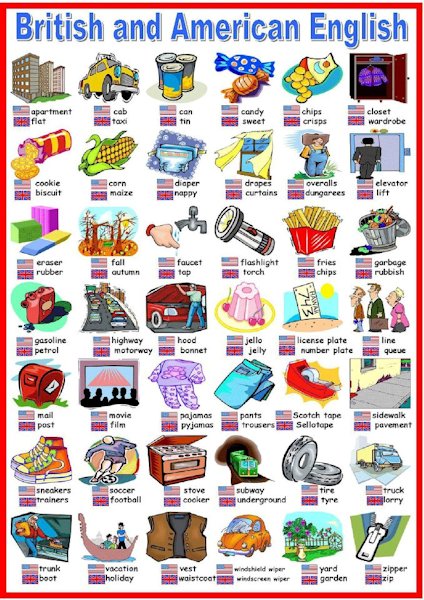
Orthographic Contextual Variant - Term 2
American and British English Variants (Examples)
In British English, some words from French, Latin or Greek end with a consonant followed by -re, with the -re unstressed and pronounced /er/. In American English, most of these words have the ending -er. The difference is most common for words ending -bre or -tre: British spellings calibre, centre, fibre, goitre, litre, lustre, manoeuvre, meagre, metre, mitre, nitre, ochre, reconnoitre, sabre, saltpetre, sepulchre, sombre, spectre, theatre (see exceptions) and titre all have -er in American spelling.
American English has kept the Anglo-French spelling for defense and offense, which are usually defence and offence in British English. Likewise, there are the American pretense and British pretence; but derivatives such as defensive, offensive, and pretension are always thus spelled in both systems.
The British English doubling is used for all inflections (-ed, -ing, -er, -est) and for the noun suffixes -er and -or. Therefore, British English usage is cancelled, counsellor, cruellest, labelled, modelling, quarrelled, signalling, traveller, and travelling. Americans usually use canceled, counselor, cruelest, labeled, modeling, quarreled, signaling, traveler, and traveling.
There are countless other small and interesting differences between AmE and BrE, which come under the heading of usage. Take the useful expression used in AmE through, meaning up to and including. E.g., The exhibition is showing March through June. The equivalent expression in BrE is from March to June, but this is ambiguous. Does the exhibition close at the end of May or the end of June? To avoid any misunderstanding, it is necessary to say something like The exhibition is showing from March to the end of June.
As another example: for Americans the number billion has 9 zeros (a thousand million); for most Britons it has 12 zeros (a million million). Zero itself is a much more common word in AmE than in BrE, where nought is more widespread. Americans are likely to say the number 453 as four hundred fifty three, whereas in Britain it would almost always be said four hundred and fifty three.